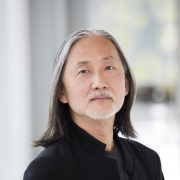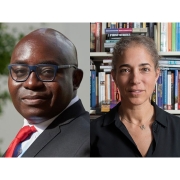Team Led by Randall Kamien Integrates Origami and Engineering

The quintessential piece of origami might be a decorative paper crane, but in the hands of an interdisciplinary University of Pennsylvania research team, it could lead to a drug-delivery device, an emergency shelter, or even a space station.
The Penn team is led by Randall Kamien, Vicki and William Abrams Professor in the Natural Sciences in the Department of Physics and Astronomy, and includes Shu Yang, associate professor in the School of Engineering and Applied Science’s Departments of Materials Science and Engineering, and Chemical and Biomolecular Engineering.
Collaborating with researchers at Cornell University, the Penn team will share in a $2 million, four-year grant from the National Science Foundation’s Division of Emerging Frontiers in Research and Innovation. The grant is through a program called ODISSEI, or Origami Design for the Integration of Self-Assembling Systems for Engineering Innovation.
The program draws inspiration from the Japanese art of paper folding, but the Penn team suggested adding a variant of the technique, known as kirigami, in which the paper can be cut as well as folded. Allowing for cuts and holes in the material makes it easier to fold rigid, three-dimensional structures.
These concepts can be scaled up, enabling applications such as emergency shelters that can be folded flat for transport. Kirigami architecture is particularly attractive for space-based structures, which are free from the size constraints imposed by gravity, but still need to fit into the cargo bays of launch vehicles.
“The thing that’s cool about geometry is that the Pythagorean theorem works the same for big triangles and little triangles,” Kamien says. “We can build something out of paper, or we can build the same structure much smaller, working with molecules, or much bigger with cloth or metal.”
Read the full story here.





